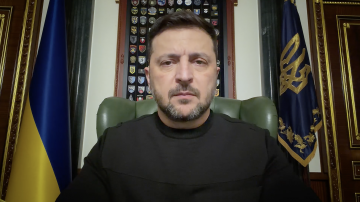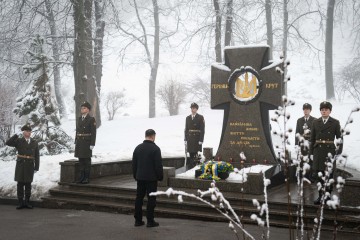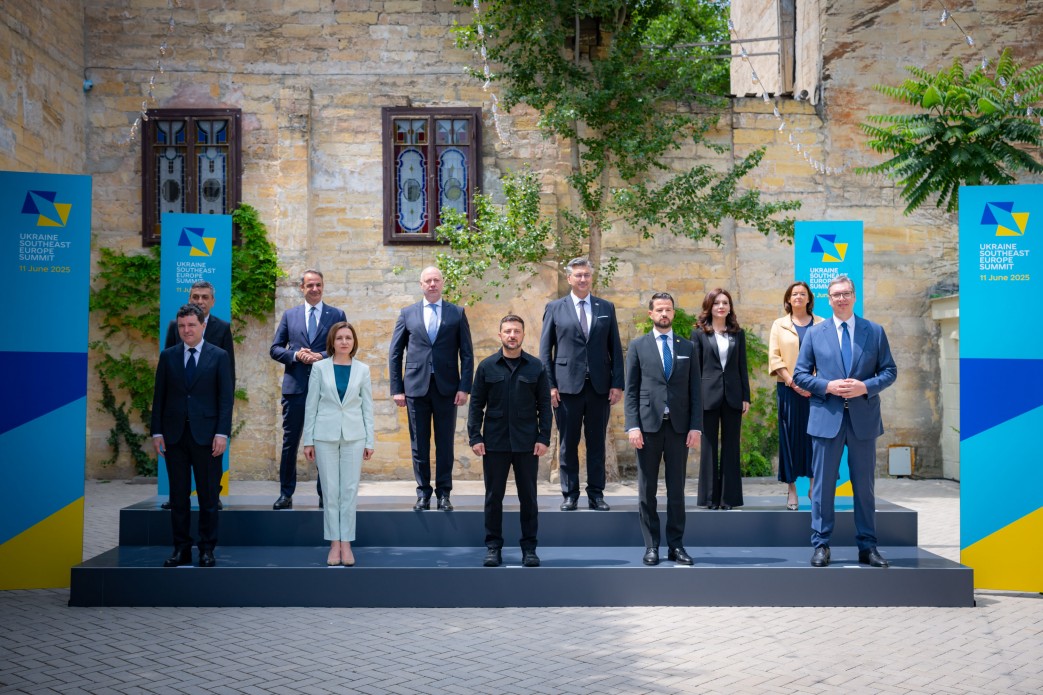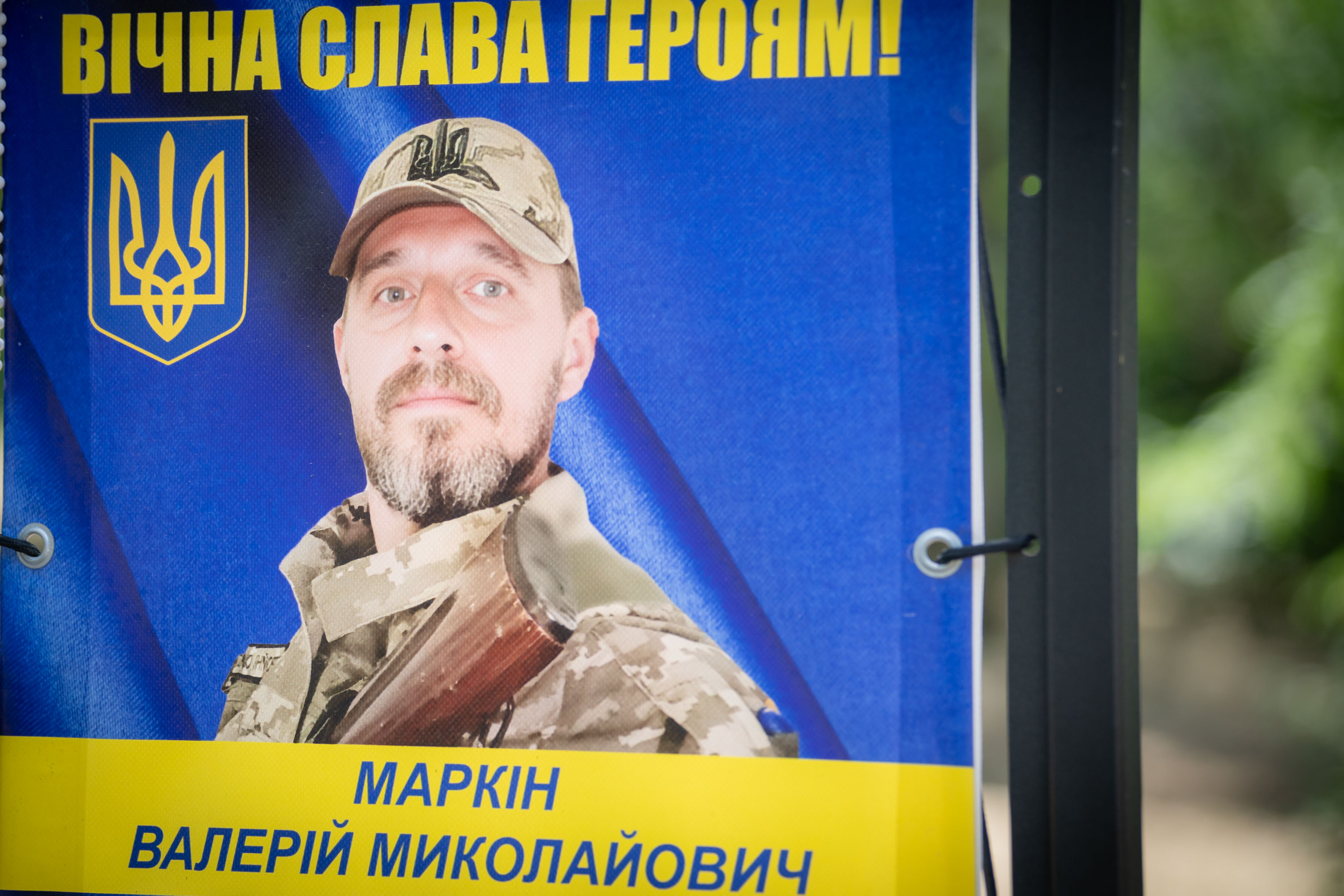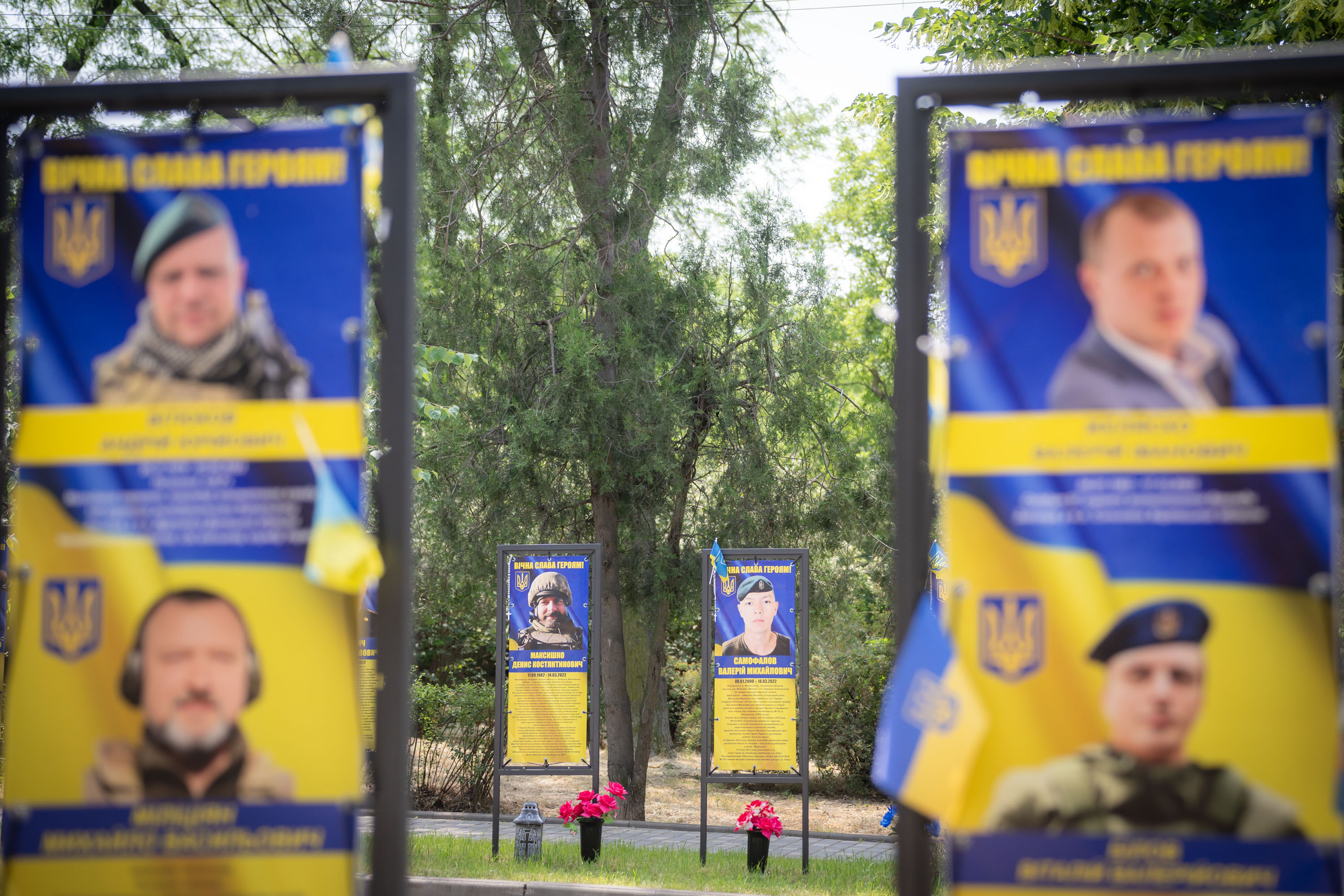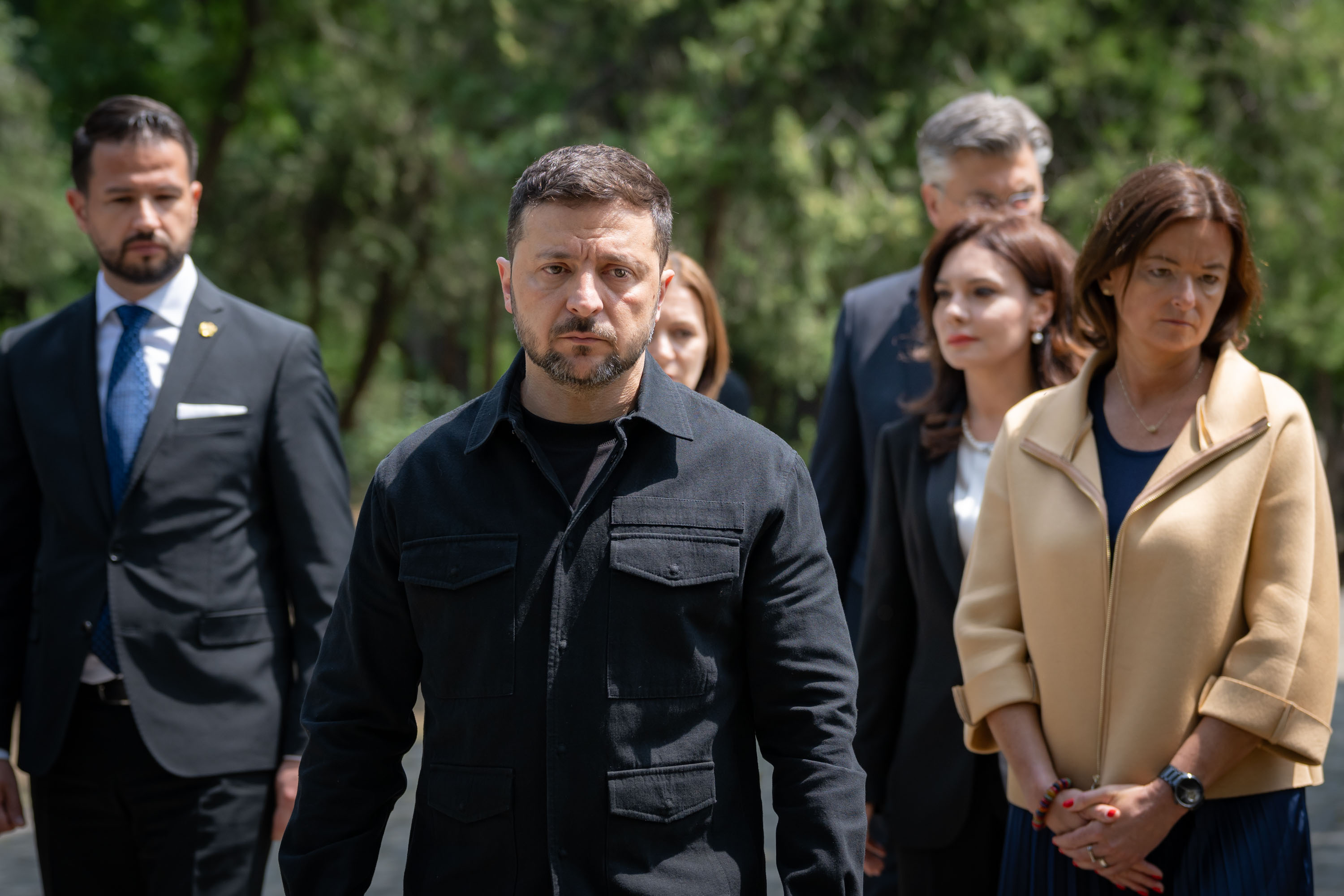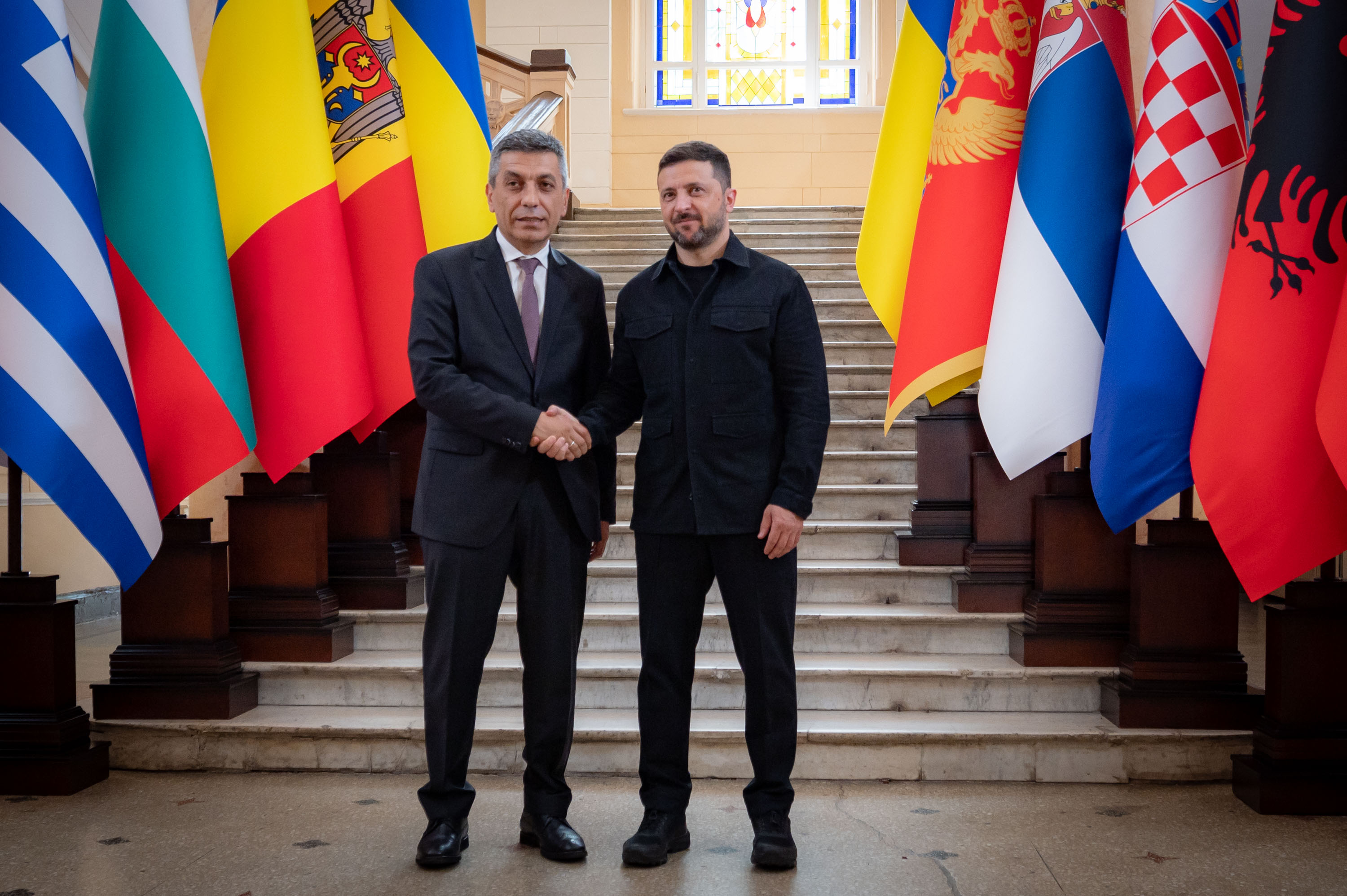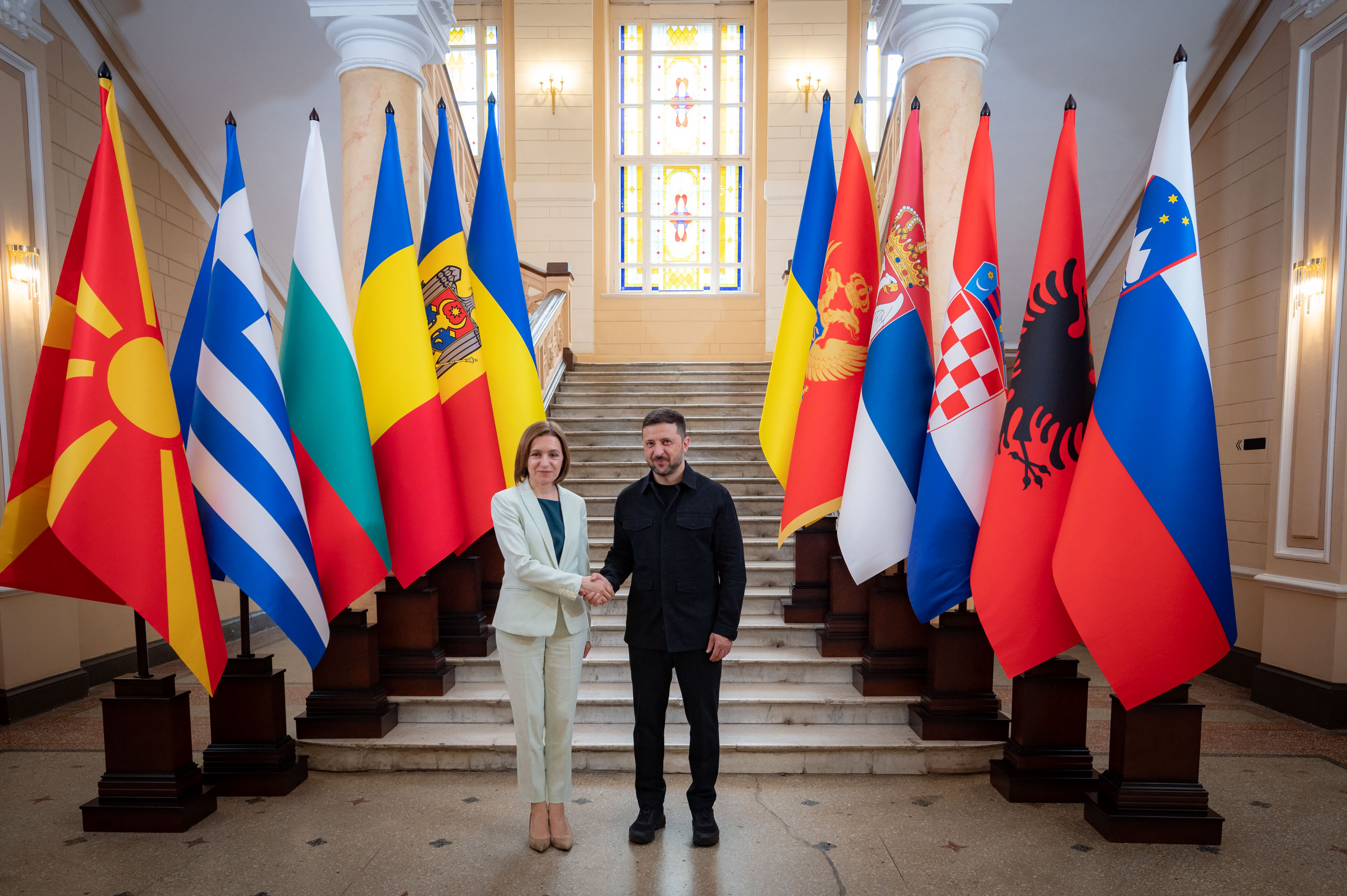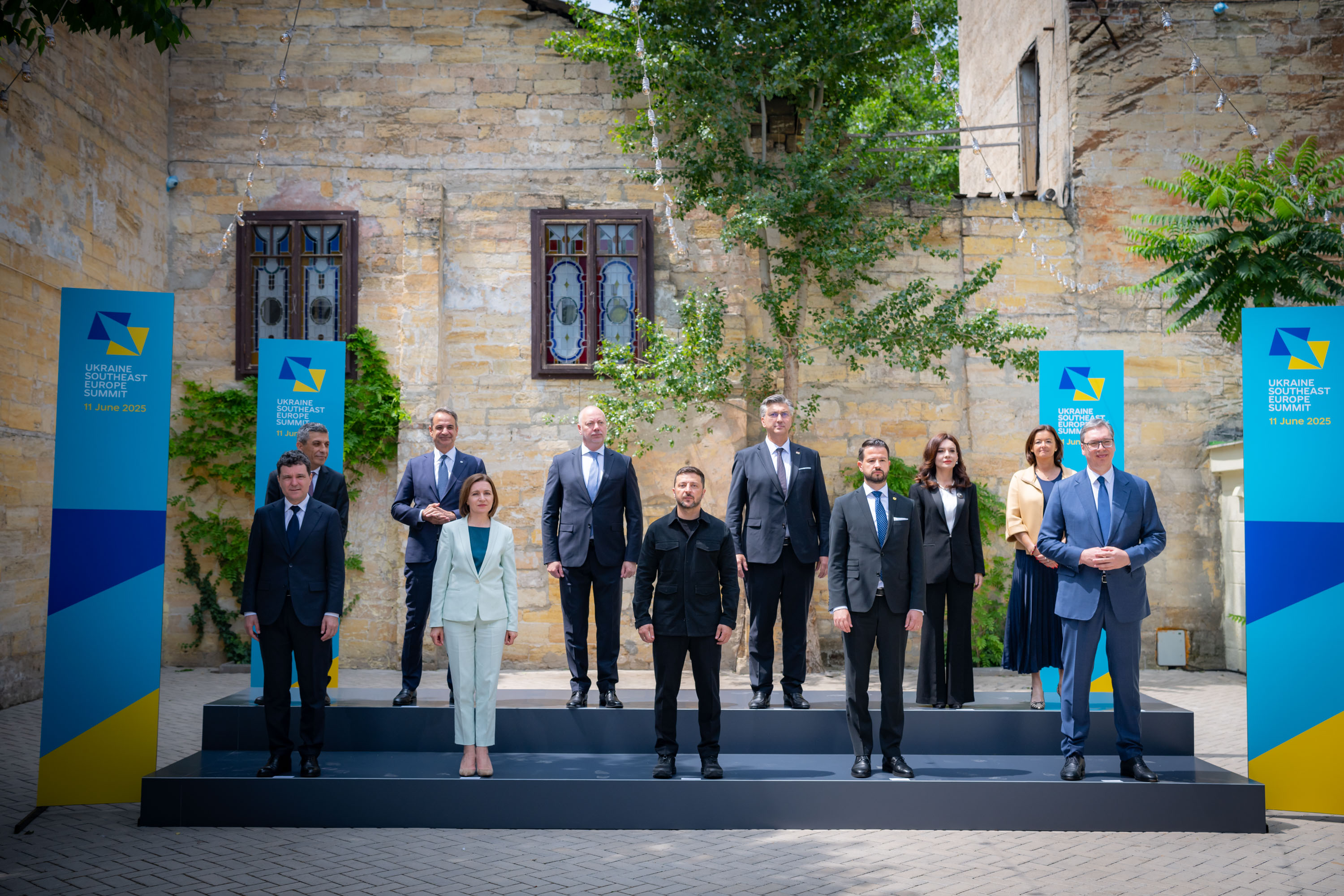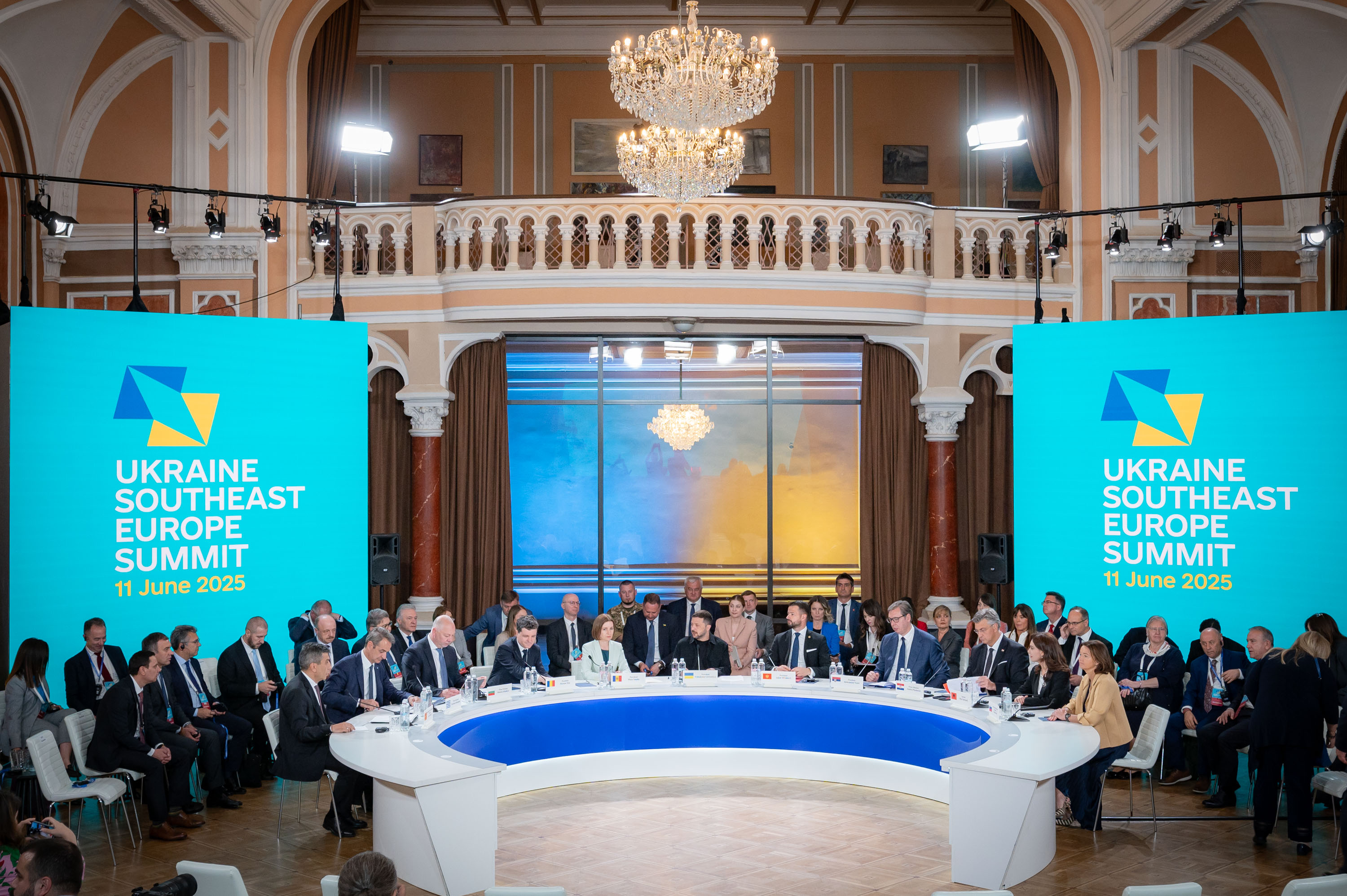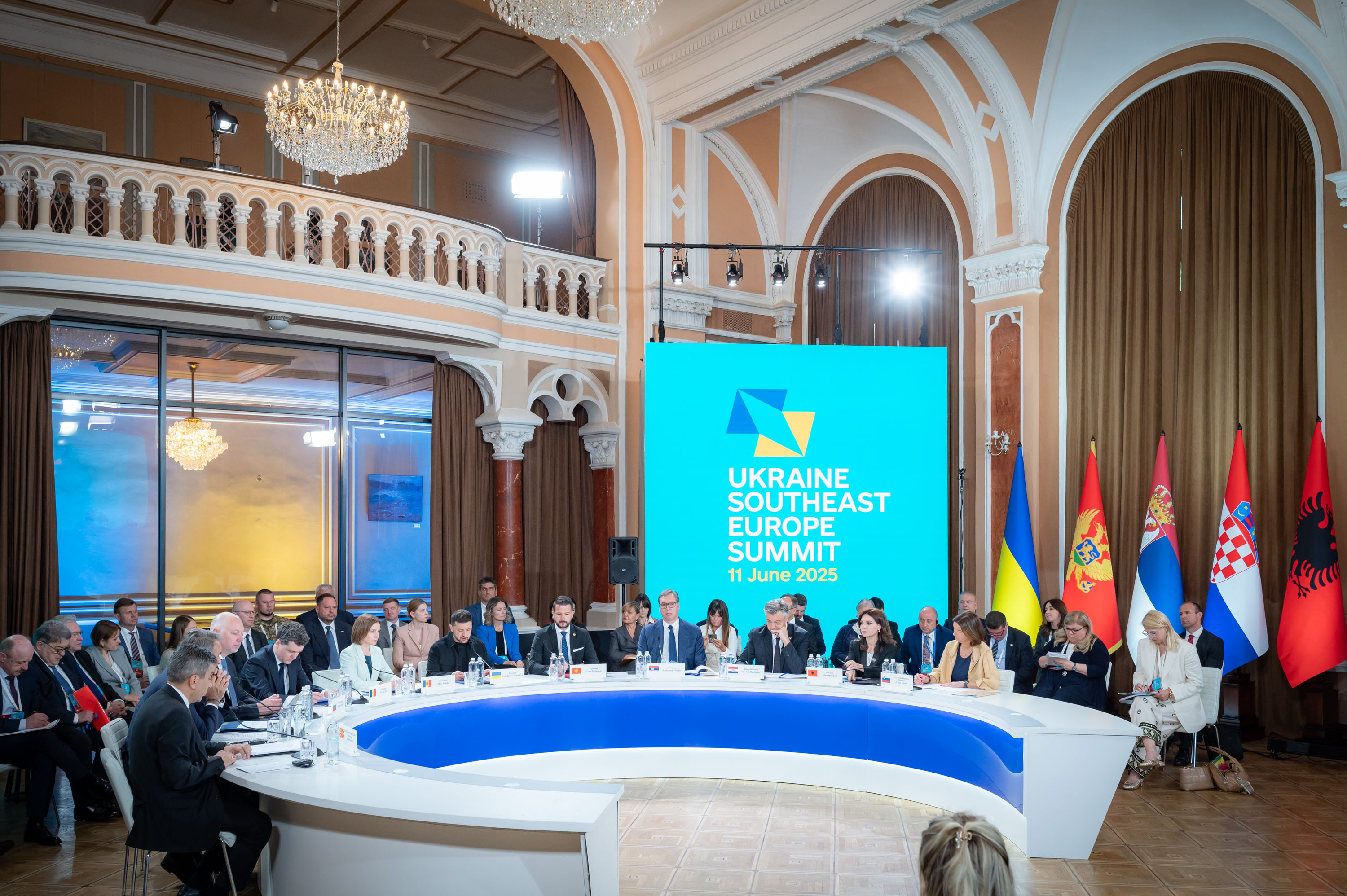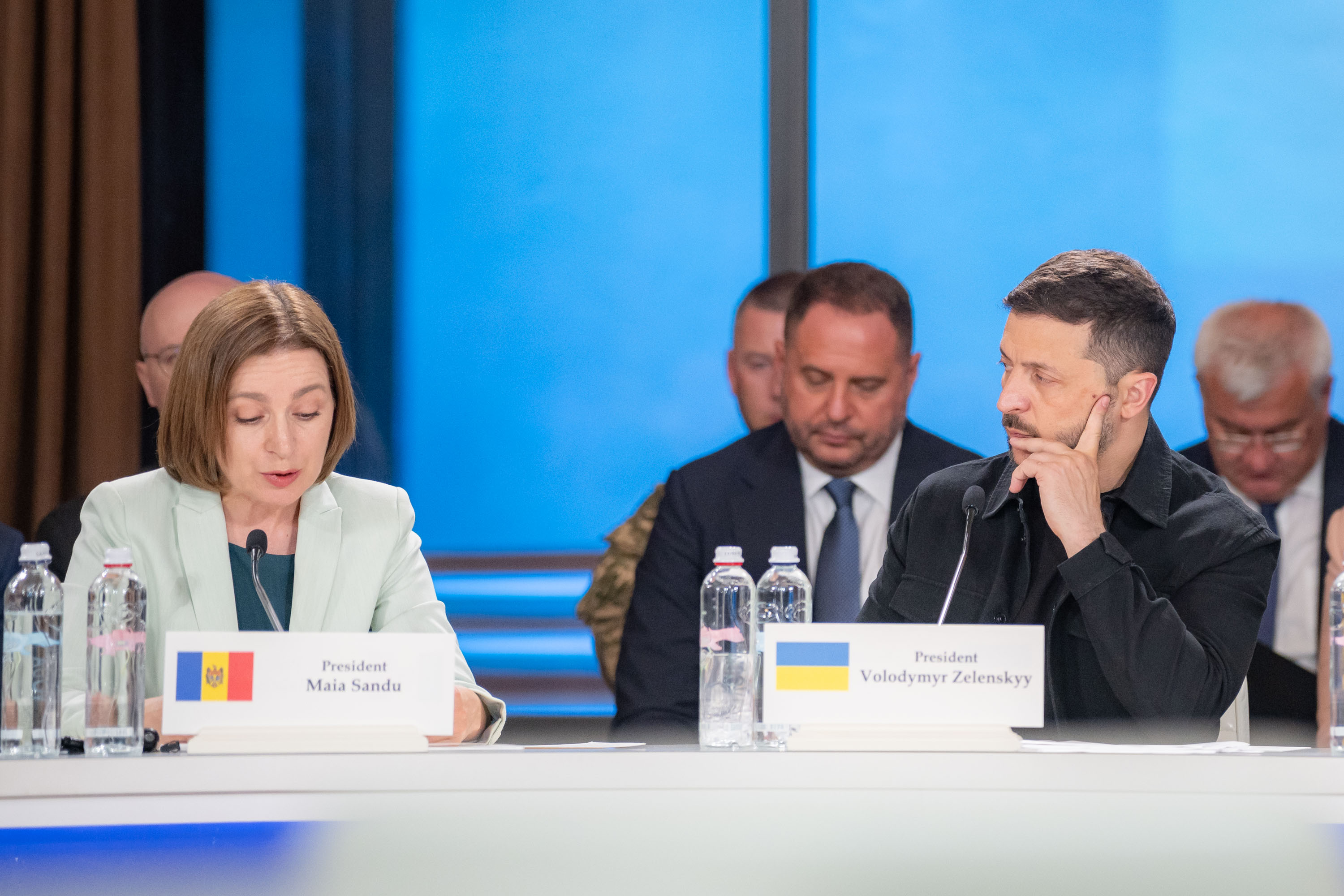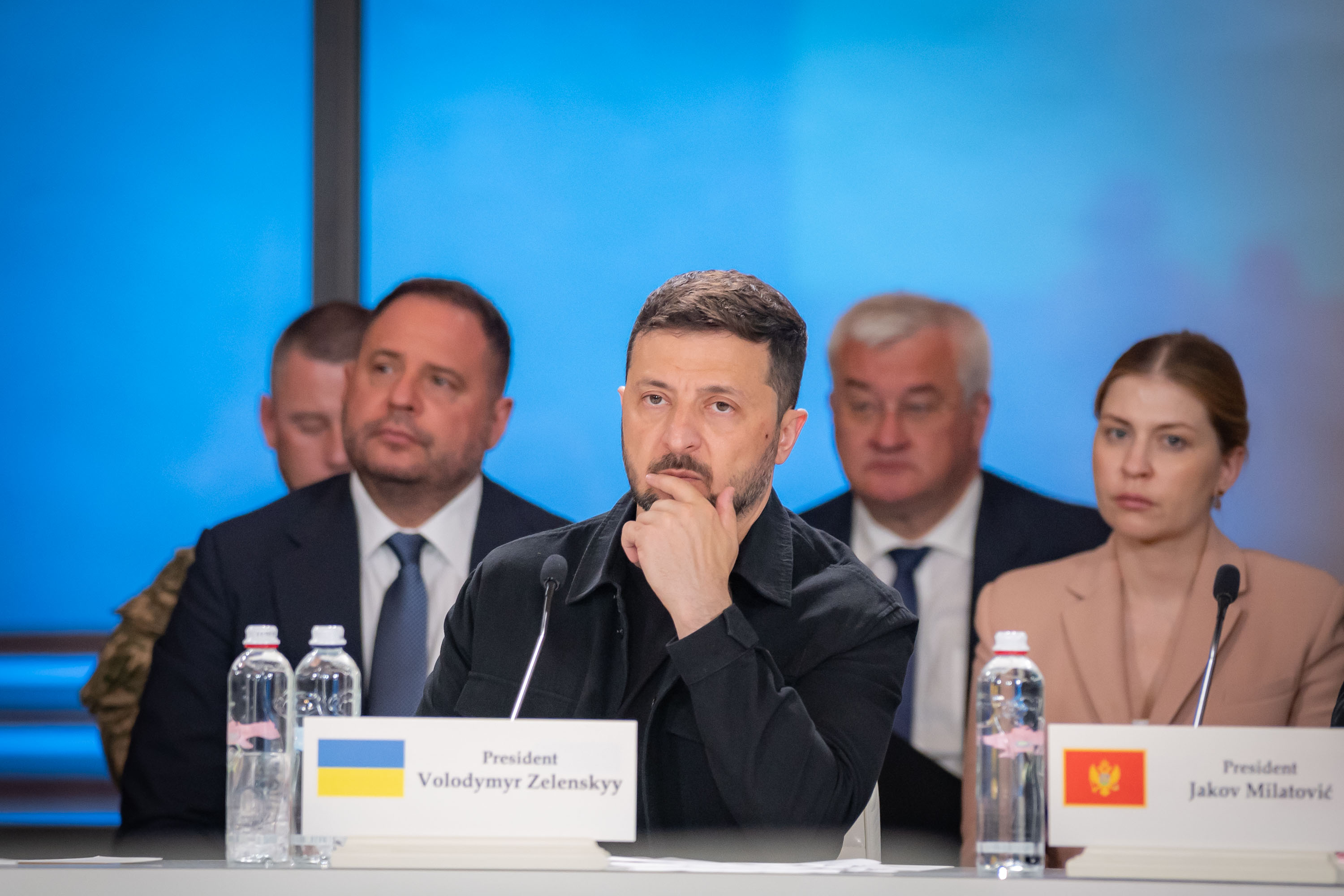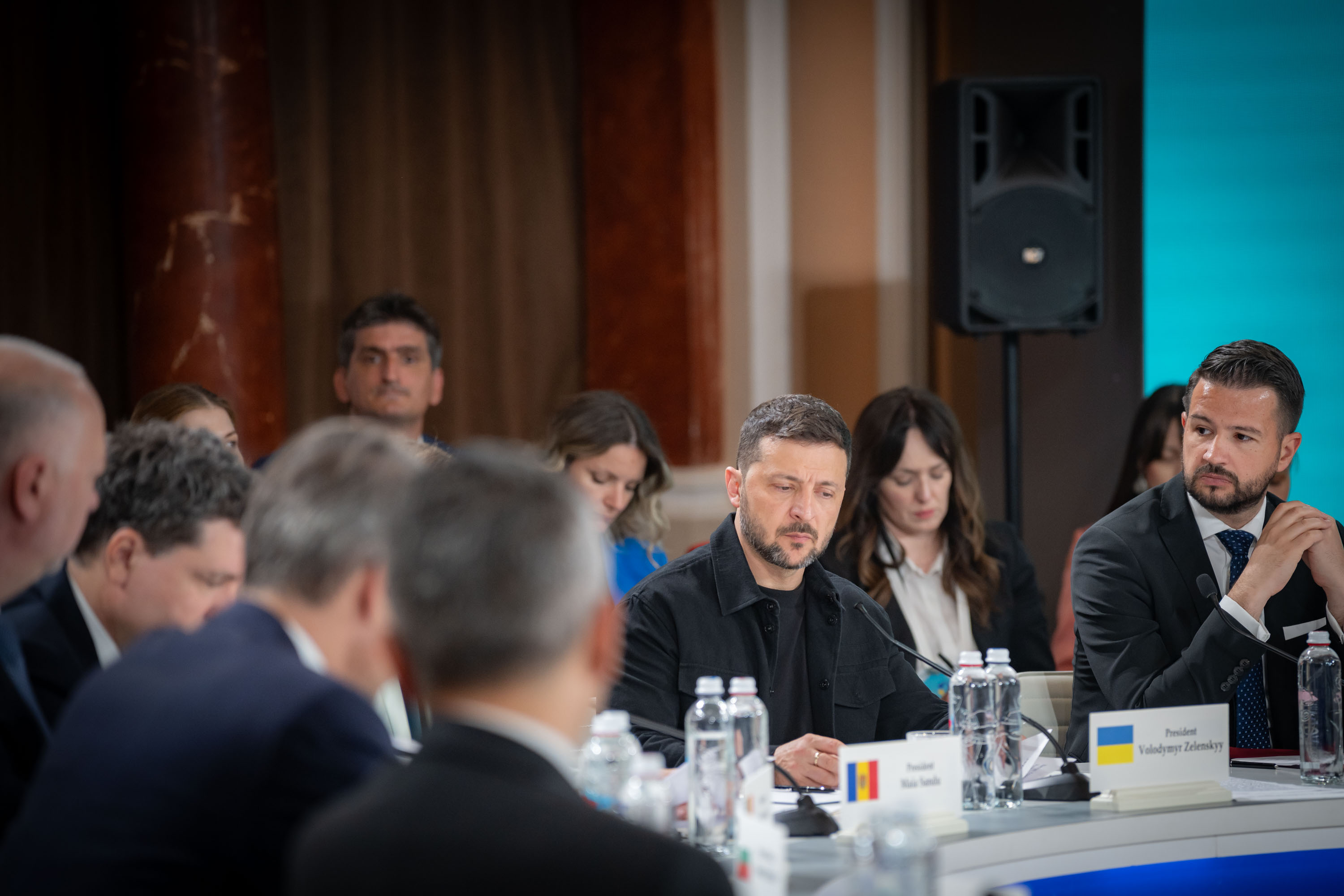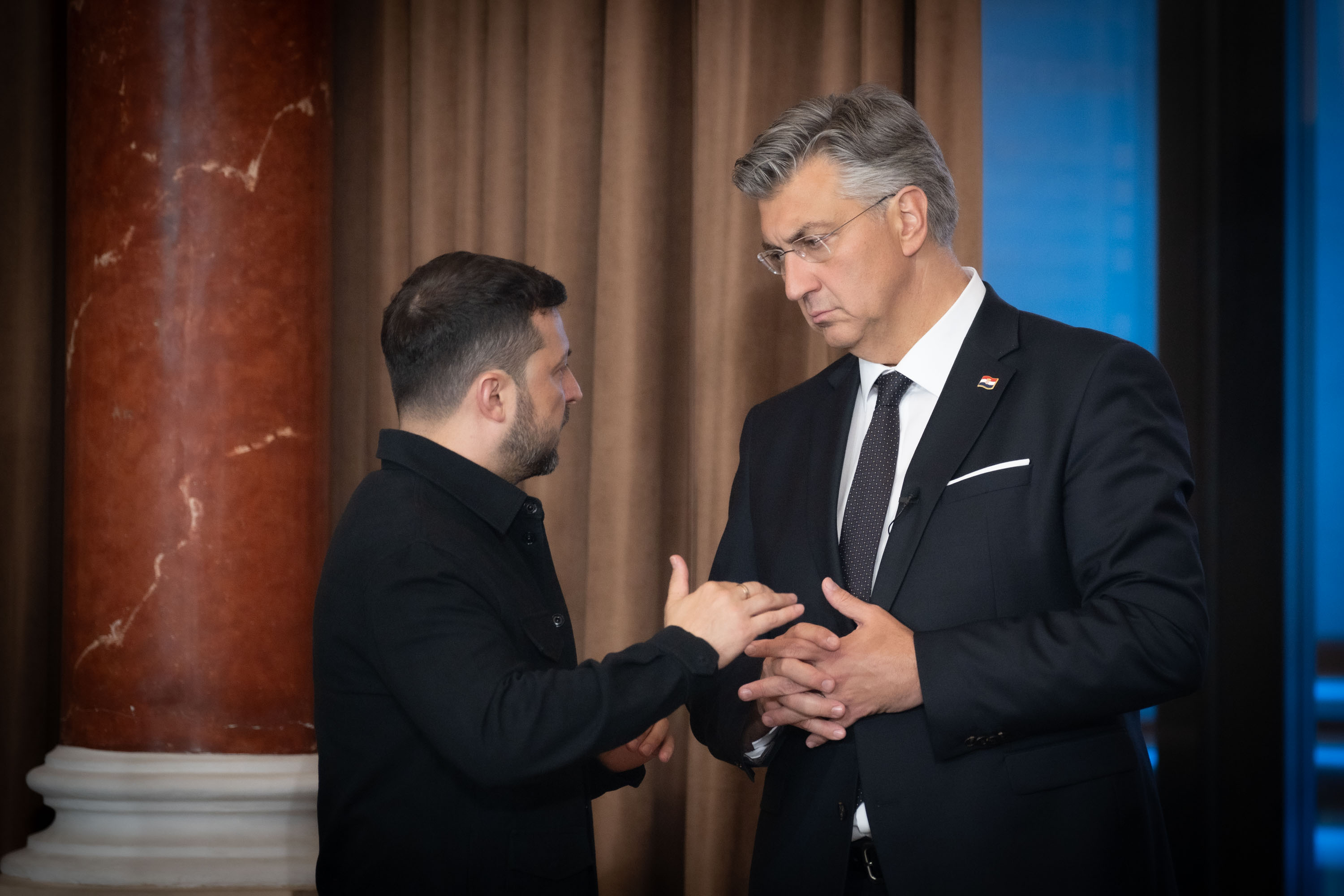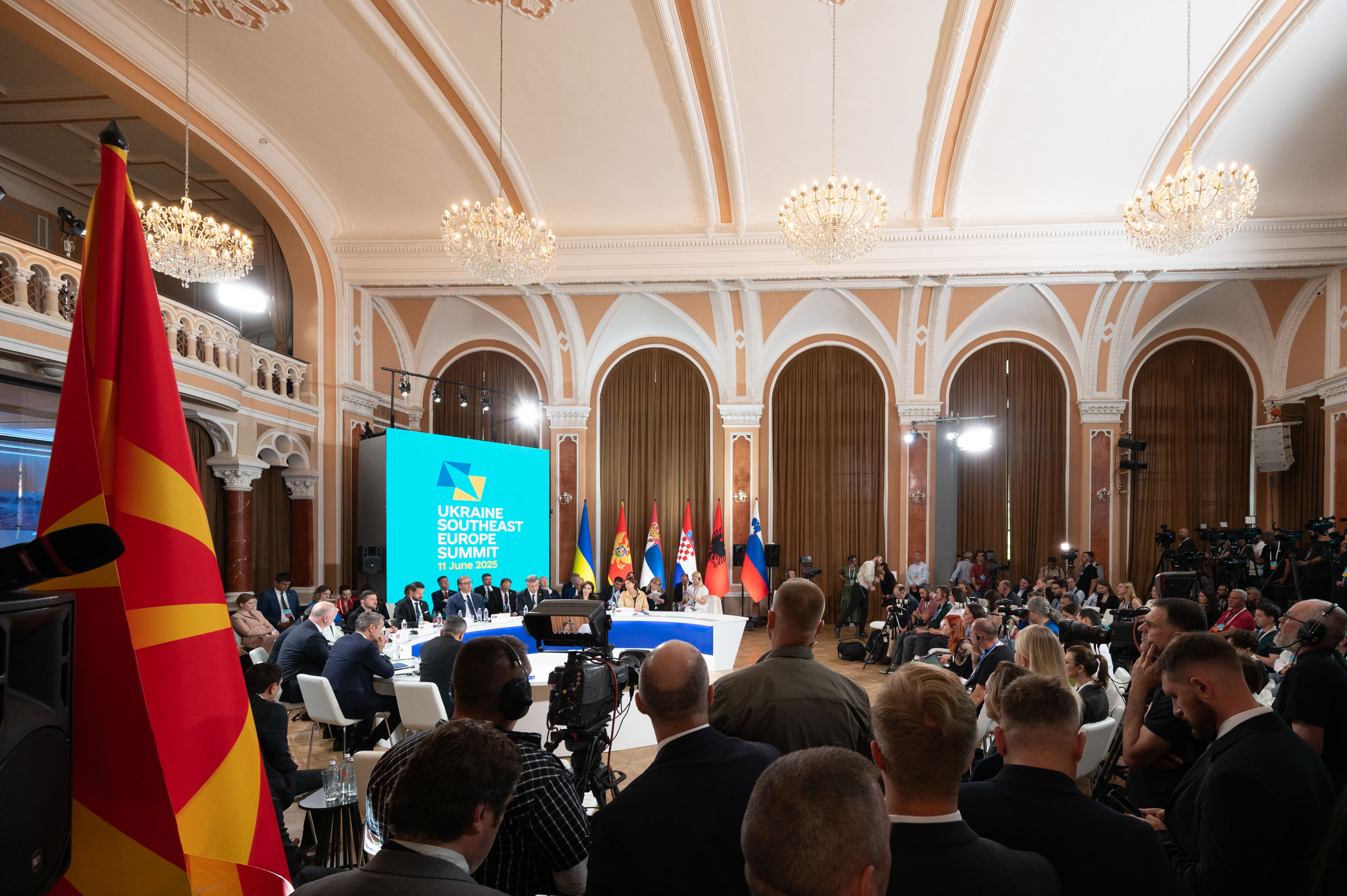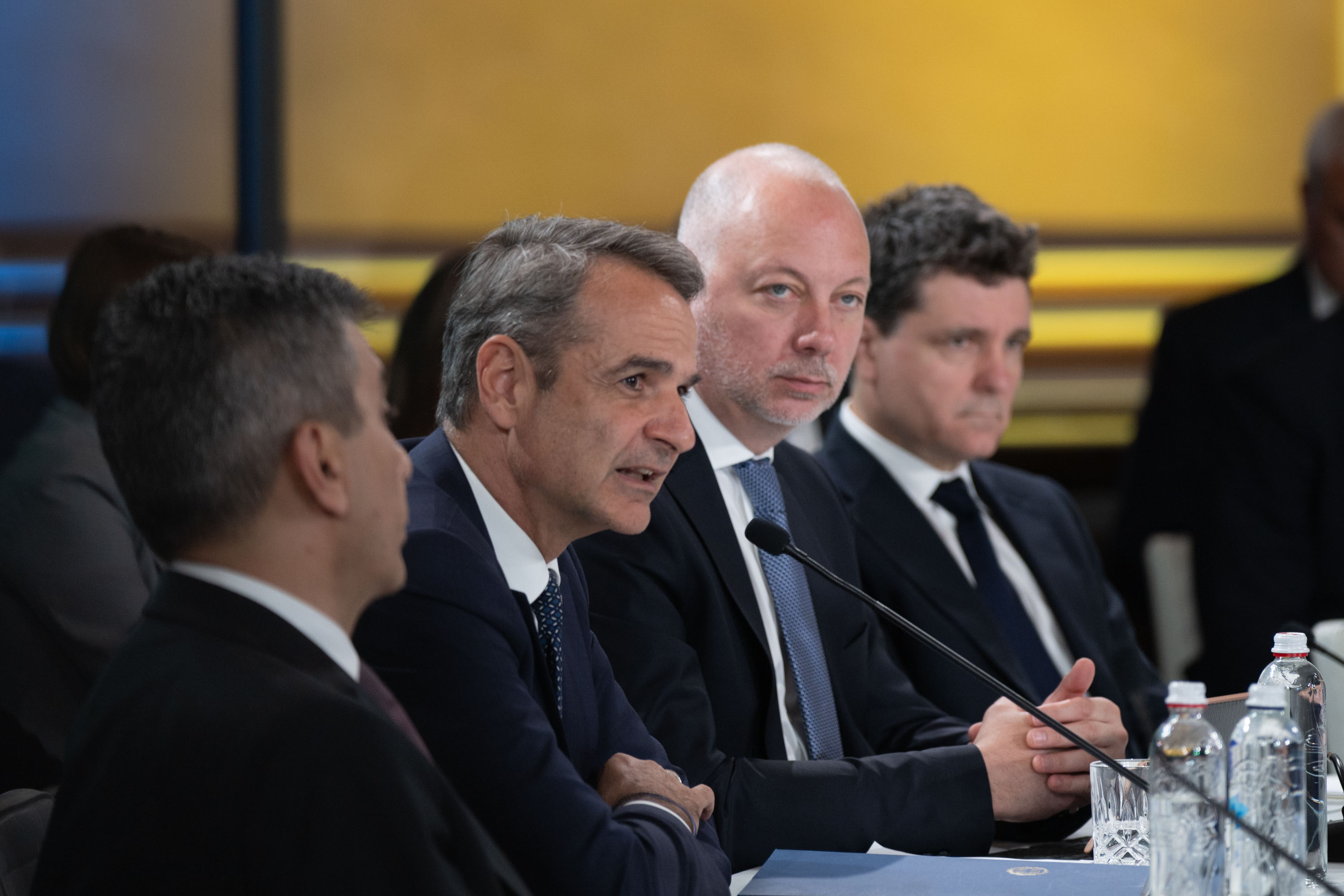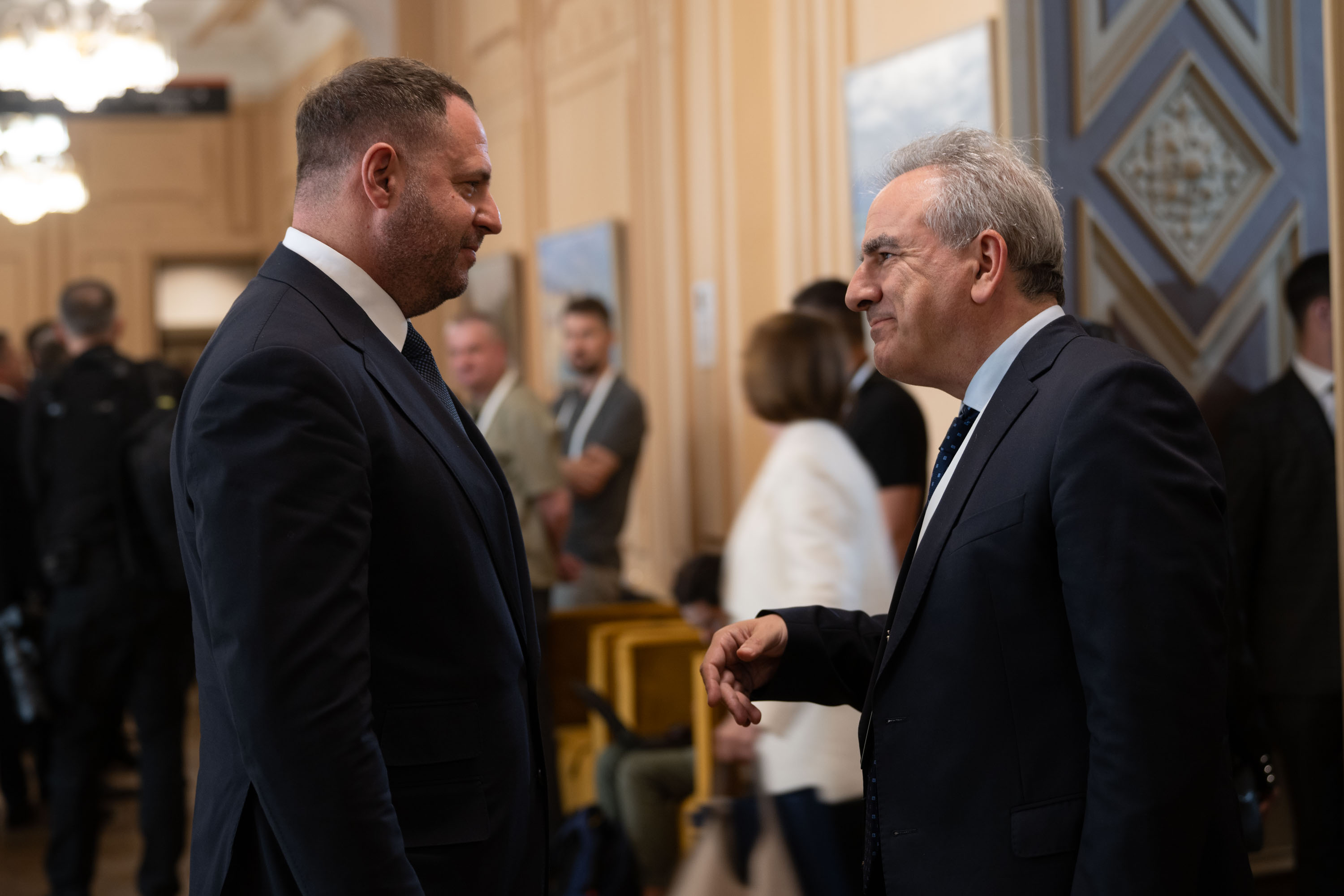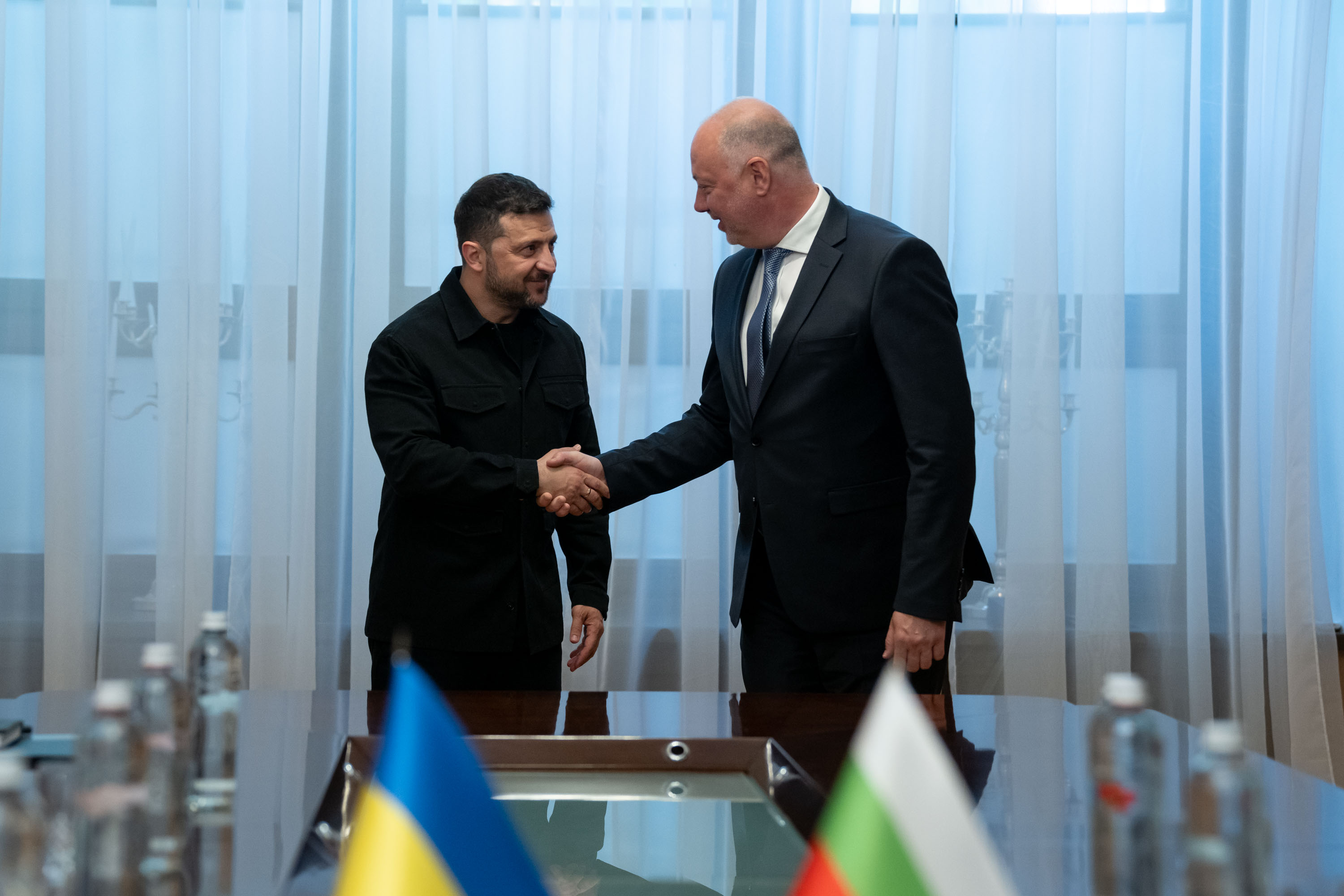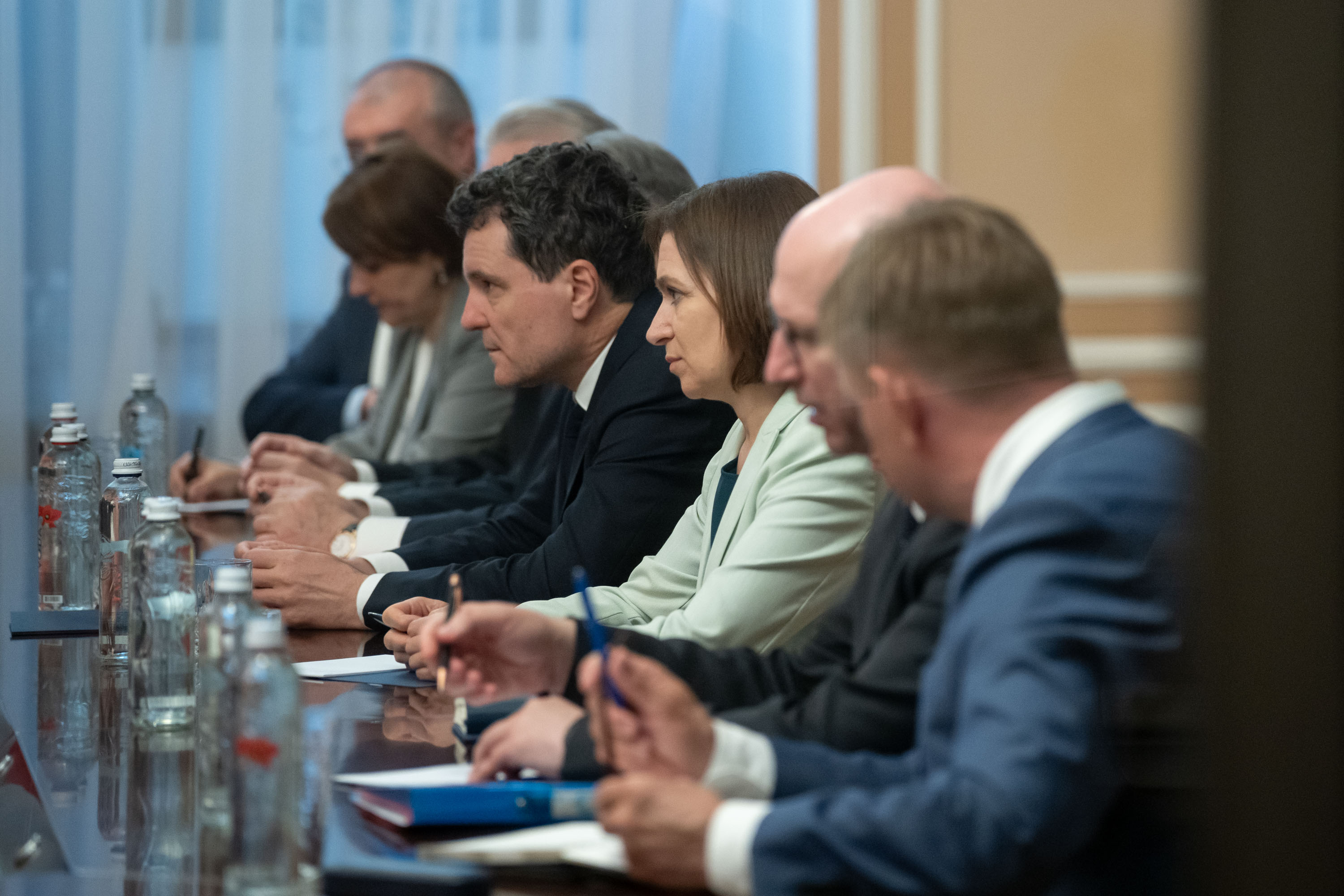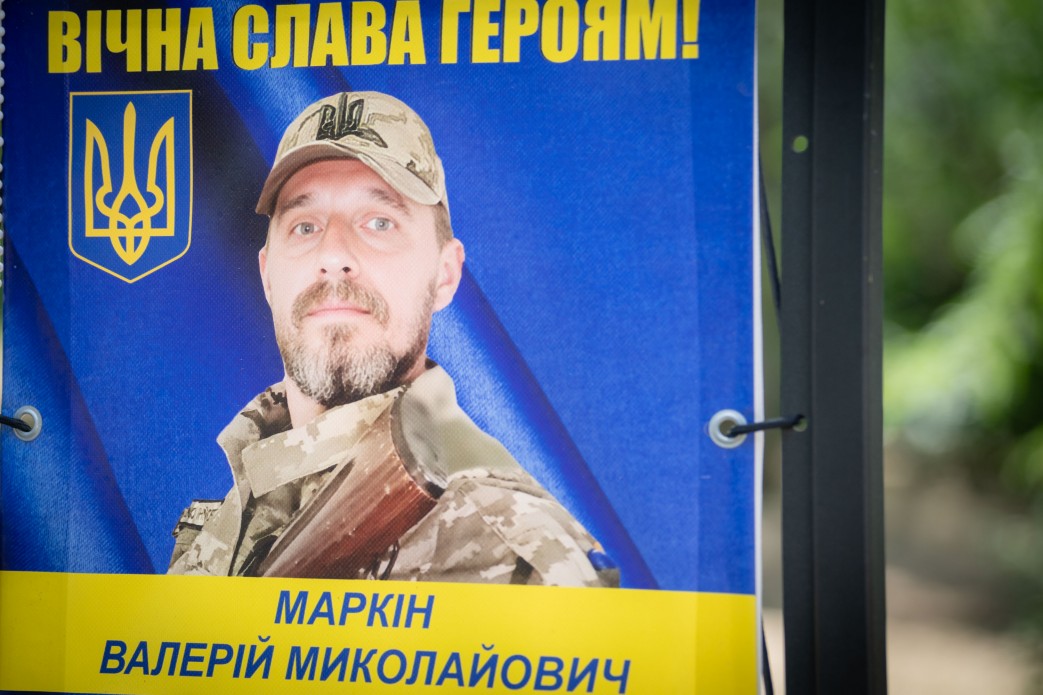UKRAINE – SOUTHEAST EUROPE
ODESA SUMMIT
ODESA DECLARATION
We, President of Ukraine Volodymyr Zelenskyy and President of the Republic of Moldova Maia Sandu, President of Montenegro Jakov Milatović, President of Romania Nicușor Dan, Prime Minister of the Republic of Bulgaria Rossen Jeliazkov, Prime Minister of the Republic of Croatia Andrej Plenković, Prime Minister of the Hellenic Republic Kyriakos Mitsotakis, Speaker of the Parliament of the Republic of Albania Elisa Spiropali, First Deputy President of the Government and Minister of Environment and Physical Planning of the Republic of North Macedonia Izet Mexhiti, Deputy Prime Minister and Minister of Foreign and European Affairs of the Republic of Slovenia Tanja Fajon, gathered on 11 June 2025 in Odesa, Ukraine, for the fourth time in the format of the Ukraine – Southeast Europe Summit.
Our work today builds on the deliberations and conclusions of the previous Ukraine – Southeast Europe Summits, held in Athens, Greece on 21 August 2023, Tirana, Albania on 28 February 2024 and Dubrovnik, Croatia on 9 October 2024, respectively.
In the course of the Summit, we addressed a broad agenda to enhance regional security, including but not limited to the Black Sea region, resilience, and cooperation. Priorities included security, hybrid threat prevention, trade, energy security, demining, Ukraine’s recovery, humanitarian aid and rehabilitation — especially for Ukrainian veterans and children affected by Russia’s war of aggression against Ukraine.
Today, as the participants of the Summit, we issue the following Declaration:
- 1,204 days have passed since Russia launched its illegal, unprovoked and unjustified full-scale military invasion of Ukraine, continuing its armed aggression against Ukraine from 2014. We condemn Russia’s brutal war of aggression against Ukraine in the strongest possible terms. It constitutes a grave crime against the Ukrainian people, a blatant violation of international law — including the UN Charter — and a severe threat to peace, security, and stability across the wider European continent and globally.
- We acknowledge and support Ukraine’s efforts to find a diplomatic path to restoring a comprehensive, just and lasting peace. In this regard, we reaffirm our unwavering support for Ukraine’s independence, sovereignty, and territorial integrity within its internationally recognized borders, including territorial waters, and we reiterate our commitment to providing comprehensive and sustained support to Ukraine and its people for as long as necessary.
- We urge the international community to intensify its support for Ukraine in its struggle to defend its freedom, independence, and territorial integrity. At the same time, we call on all nations to refrain from offering any form of material or other assistance to Russia’s war effort. We underscore the importance of alignment with the European Union’s Common Foreign and Security Policy decisions and measures.
- Full withdrawal of Russian forces and equipment from the entire Ukrainian territory, an end to hostilities and the war as a whole, and the full restoration of Ukraine’s internationally recognized borders are essential, non-negotiable conditions for a comprehensive, robust and durable peace.
- We emphasize the strategic importance of the Black Sea for European and global security, including food security, and commit to strengthening regional maritime cooperation, maritime security, connectivity, safety, freedom of navigation, and protection of critical infrastructure.
- The future membership of Ukraine, the Republic of Moldova and our Southeast European partners in the EU is vital for the long-term stability, security, and prosperity of the region and Europe as a whole.
- NATO membership remains the best cost-effective security option for Ukraine. We reaffirmed our support to the Euro-Atlantic aspirations of partners of the region. We support Ukraine on its irreversible path to full Euro-Atlantic integration, including NATO membership. The Open Door Policy, enshrined in Article 10 of the North Atlantic Treaty, is one of NATO’s main strengths. Neither Russia nor any other state that is not a NATO member has the right to veto the Alliance’s enlargement. In the same vein, we fully support Ukraine's right to choose its own security arrangements and decide its own future, free from outside interference.
- We condemn the war crimes and crimes against humanity committed by the Russian armed forces and other military formations in and against Ukraine, including deliberate, disproportionate and indiscriminate armed attacks and drone and missile strikes against the civilian population and critical civilian infrastructure of Ukraine, as well as the forced deportation of thousands of Ukrainian civilians — including children — from the temporarily occupied territories of Ukraine to the Russian Federation.
- We reaffirm the importance of effective and independent investigations of Russia's war crimes against Ukrainians and other crimes committed in or against Ukraine, and of subsequent bringing the perpetrators to justice. Furthermore, we support the international efforts to set up a special tribunal for the crime of aggression against Ukraine, committed by the Russian Federation.
- We underscore the importance of food security. Ukrainian agricultural products must be freely and safely delivered to global markets. To this end, safe, unimpeded commercial navigation and access to Ukraine’s Black Sea and Azov Sea ports are essential. Food security must not be weaponized. We reiterate the significance of demining as the starting point for Ukraine’s recovery and reconstruction, and we welcome the efforts undertaken by coastal states in this respect. Attacks by Russia on merchant ships, civilian ports, and related infrastructure, as well as violations of other countries’ sovereign territory, including airspace, are unacceptable.
- Ukraine’s energy infrastructure continues to suffer from deliberate and systematic attacks by Russia. We discussed ways to scale up our support, including mobilizing the private sector to provide necessary equipment and financing. We also emphasized the importance of enhanced regional coordination and robust electricity interconnectors to mitigate the impact of these attacks and strengthen regional energy security.
- We encourage the international community to maintain and further strengthen sanctions against the Russian Federation in the banking and energy sector, especially regarding the oil price caps and Russia’s shadow fleet to deprive the aggressor of the resources needed to continue fuel its war of aggression against Ukraine, as well as take measures to prevent sanctions circumvention. Russia must be held accountable and pay full compensation for its illegal war of aggression against Ukraine. The Russian assets in all possible forms play a constructive role in recovery of Ukraine according to the international law provisions.
- We confirm our intention to develop and strengthen friendly relations in the fields of economic cooperation and trade and to work towards further advancing trade and economic integration within the region and between the region and the EU, following effective incorporation of the EU acquis and free trade between non-EU members.
- We commit to contributing to Ukraine’s ongoing and post-war recovery and reconstruction. This includes engaging all relevant stakeholders — international financial institutions, private companies, local communities, and other partners — to secure the investments, expertise, and financial support necessary to build a prosperous future for Ukraine. The countries in Southeast Europe should play a pivotal role in Ukraine’s reconstruction process.
- We reaffirm our commitment to enhancing cooperation and coordination in the humanitarian sector through the implementation of targeted initiatives, particularly in programs focused on health and rehabilitation of veterans and vulnerable groups affected by Russia's armed aggression against Ukraine. In this context, the International conference on the rehabilitation and reintegration of veterans, to be held in Croatia in October 2025, will be of particular relevance.
- We emphasize the critical importance of cooperation in cyber security and in preventing illegal and hybrid interference in electoral processes of sovereign states, including through disinformation and foreign information manipulation and interference. We underline the key role of the EU support aimed at strengthening the democratic processes and countering foreign interference, also in candidate countries. We warn that any interference — direct and indirect — in the constitutional or electoral processes of a sovereign state is inadmissible. Such actions constitute a grave violation of international law and pose a serious threat to democratic values, principles and processes across the region.
- The Parties affirm the importance of mutually facilitating information sharing and the exchange of experiences in countering cyber-attacks during hybrid warfare as well as recommendations on strengthening the protection of information and communication systems, considering their own experience in countering malicious cyber operations.
- In this regard, we agree to work jointly on the prevention of hybrid threats and to hold the next meeting in Odesa of the countries – parties to this Declaration at the level of relevant agencies.
- A free, peaceful, and prosperous Europe is impossible without a free, peaceful, and prosperous Ukraine. The participants of the Ukraine – Southeast Europe Odesa Summit remain resolutely committed to this vision.


